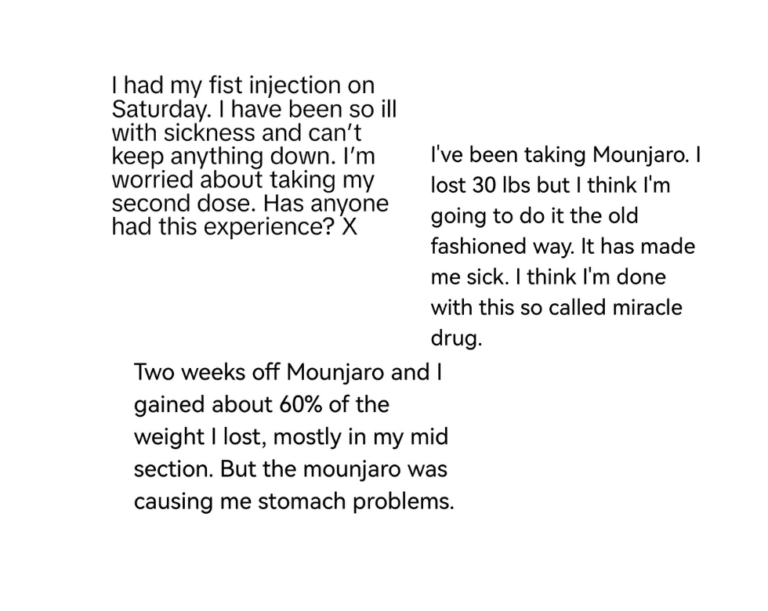Online Nutrition consultations provide accurate and up-to-date scientific nutrition information that can help you reach your goals. Take control of your health today with our convenient virtual options.

Online Nutrition consultation and Corporate Nutrition
Eating, physical activity and other weight-related lifestyle behaviors may have been impacted by the COVID-19 crisis and people with obesity may be disproportionately affected.
Food Is Medicine
Tackling obesity is one of the greatest long-term health challenges the UK faces.
2020 around two-thirds (63%) of adults are above a healthy weight, and of these half are living with obesity. We have 1 in 3 children leaving primary school who are already overweight or living with obesity with 1 in 5 living with obesity.
Obesity is associated with reduced life expectancy. It is a risk factor for a range of chronic diseases, including cardiovascular disease, type 2 diabetes, at least 12 kinds of cancer, liver and respiratory disease, and obesity can impact on mental health
Obesity has become an immediate concern for anyone who is overweight and for our health and care services.

Lots of people who are overweight or living with obesity want to lose weight but find it hard. Many people have tried to lose weight but struggle in the face of endless prompts to eat – on TV and on the high street. In supermarkets, special offers and promotions tempt us to buy foods that are not on the shopping list but are hard to resist. When we eat out, we have little information about how many calories are in the food we are offered. We are biologically programmed to eat and when we are bombarded by advertisements and promotions for food – it’s hard to eat healthily, especially if we are busy or tired or stressed.
Obesity is strongly associated with sickness absence in the workplace. Employees with musculoskeletal and other (chronic) health conditions report higher rates of absenteeism and presenteeism than workers without such conditions. Good nutritional care can improve outcomes for these workers.
Poor nutrition and physical inactivity among employees affect the workplace; overweight and obesity are among the most common health issues affecting productivity .
Workplace health promotion programs to prevent overweight and obesity in office-based employees should be evidence-based and comprehensive and should consider behavioral, social, organizational, and environmental factors.
- Physical inactivity has increased in workplaces because job roles have changed from manual labor to predominantly inactive tasks.
- Because of the common use of desktop computers, 45% of employed adults in UK work in sedentary roles
- Similarly, a rise in levels of automation and in the number of labor-saving devices has resulted in more people working in sedentary roles in the United Kingdom .
- The combination of sedentary behavior and easy access to energy-dense, nutrient-poor foods compounds the risk of overweight and obesity
Benefits of online NUTRITION intervention
Holistic Nutrition delivered by trained professionals resulted in significant positive changes in both nutrition knowledge and behaviors in participants.
In recent years there has been greater demand from our clients requesting online services and support. Here are some of the benefits of having online nutrition coaching:
- Greater confidentiality
- No travel time
- Feeling safe at home
- More convenience
- No waiting rooms
- Easier to schedule
Increase Your Employees’ Wellbeing & Productivity
Tackling obesity is not just about an individual’s effort, it is also about the environment we live in, the information we are given to make choices; the choices that we are offered; and the influences that shape those choices.
That’s why when it comes to food and drink, we want to ensure everyone has the right information, that they are offered a fair deal and that they are not unduly influenced to purchase less healthy foods and drinks. Put simply, we want the healthy option to be an easier option for everyone.
It’s hard to make the healthy choice if you don’t know what’s in the food you are eating. We know that when shopping, identifying the healthiest products is not always easy. We want to do all we can to help people wherever they shop, to make informed food and drink choices that help them improve their health.
There is growing evidence to suggest that good nutrition is just as important for mental health as it is for physical health and that a number of conditions, including depression, may be influenced by dietary factors(2) Assisting people to effectively manage stress will have a positive
impact on the ability to control both mood and weight.
Mindful Eating
Nutrition interventions works very well alongside other wellness programmes.
The key aspects of a good nutrition intervention include:
- Employees are involved in planning and delivering the intervention (through needs assessments and/or a team approach such as staff-side
champions for example); - Senior management are consulted on the planning of an intervention as well as being visibly committed to the intervention multi-level approaches work best (for example group workshops alongside changes in the catering provision);
- Electronic methods are extremely useful in delivering and supporting an intervention, but can be more effective if there is also face to face contact (for example prompts via email following a tasting session, or the provision of an electronic food and drink diary after a question and answer session on the importance of breakfast)
- physical activity combined with dietary approaches is more effective in weight management than as single components
- delivery – a mixture of types of activities shows better success rates
- people do not like being told what to do – behaviour modification strategies are important for behaviour change
A good nutrition intervention in the workplace:
- Better business through positive leadership and commitment to health.
- Keeping healthy people at work and increasing their productivity potential whilst there.
- Working together to achieve a healthy weight for wellness.
- Maintaining a healthy environment and culture within the workplace. It is right that workers should take responsibility for their individual healthy habits, but some unhealthy practices can be influenced by the environment. Small ‘nudges’ can create behaviour change and improve health. When implemented by experts using a validated model, behaviour change techniques can be effectively used across organisations to reduce healthcare costs, improve productivity and reduce absenteeism.
15 min free call
Our 15-minute consultation is completely free, so you can take the first step towards a healthier, happier you without any fees
- Greater London Authority, 2012) http://www.london.gov.uk/sites/default/files/GLA%20
economics%20 London%27s%20business%20case%20for%20workplace%20health%202012.
pdf#page=9&zoom=auto,-107,778
2 Long Term Conditions Compendium of Information: Third Edition, Department of Health 2012.
3 Gatineau M, Dent M (2011) Obesity and Mental Health. Oxford: National Obesity Observatory


